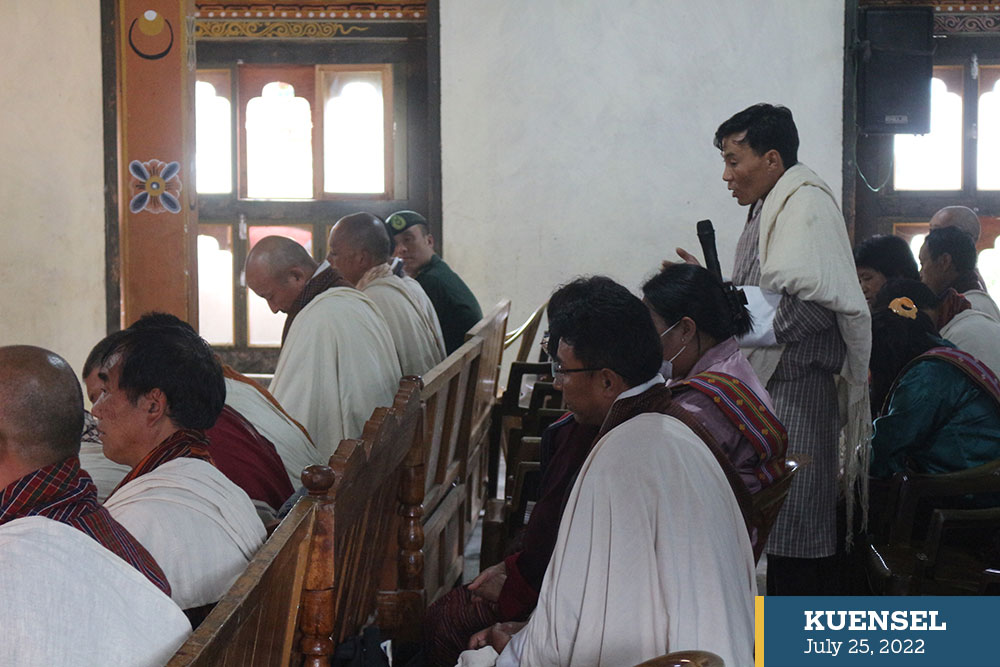Nima Wangdi
Villagers from Chhokhor gewog asked the Prime Minister about the progress on the pledge to connect their area with a cellular network during Lyonchhen’s visit to the gewog last week.
During the bye-election of the National Assembly, member from Chhokhor-Tang constituency, the Druk Nyamrup Tshogpa candidate and now MP, Dawa pledged mobile network for the highlanders.
A resident of the gewog, Pema Wangchen, 40, said that in absence of mobile network coverage the highlanders have communication problems.
“Herders have to travel from Gangkar Puensum to Tshampa and from Gomthang till Paksamlum when there are problems,” he said.
“Currently, if a cordyceps collector suffers from high-altitude sickness, she or he has to be carried on the back from Gangkar Puensum. If people could instantly contact emergency services, lives could be saved.”
He said there are wireless facilities with the security personnel at the borders but the messages can’t be immediately and efficiently conveyed.
Chhokhor-Tang MP Dawa said the gewog has reminded him repeatedly and that he had submitted an application to the Minister of Information and Communications (MoIC). He said that Lyonchhen had also instructed the minister to work on it. “MoIC then wrote to Bhutan InfoComm and Media Authority (BICMA) as the authority has to ask Bhutan Telecom and Tashicell to bid for the work.”
“BICMA told me that they can’t do it immediately due to budget constraints but they would try to do it from September. I have also requested them not to delay it any further.” Dawa said.
Chhokhor Gup Sangla said that potato was the main cash crop for the people of the gewog and different agencies have supplied a variety of seeds.
He said the fertiliser shortage was more severe last year due to the Covid-19 pandemic. “Farmers were unhappy as they could not get fertiliser on time. I request the government to help us get it on time.”
Lyonchhen said that Bhutanese have been buying fertilisers from India despite the Indian government’s export restrictions. The import became difficult due to strict customs inspection during the pandemic.
Lyonchhen said the government was in the process of preparing documents with a European country to buy fertilisers but it could not be realised due to the Ukraine-Russia war. “The fertiliser problem might get more severe if the war does not end and we have no control over it.”
Lyonchhen said: “For now, the agriculture ministry is testing a fertiliser from India on how effective it would be. We will supply it if it is good.”
Human-wildlife conflict has been a major issue for the highlanders in the gewog.
Farmers said that they could not match the intelligence of the wild animals. A chain link fence could be the answer.
However, Lyonchhen said that it was not a new idea but was stuck due to financial constraints.
“We thought the project should start and have allocated Nu 500 million for this. Fencing work will begin after discussing the project with the local leaders in all the 205 gewogs,” Lyonchhen said.
Lyonchhen also assured that all the activities that could not be done in the past two years will be completed in the remaining one year and four months of the government’s tenure. “We will not leave anything undone in the name of the pandemic.”


